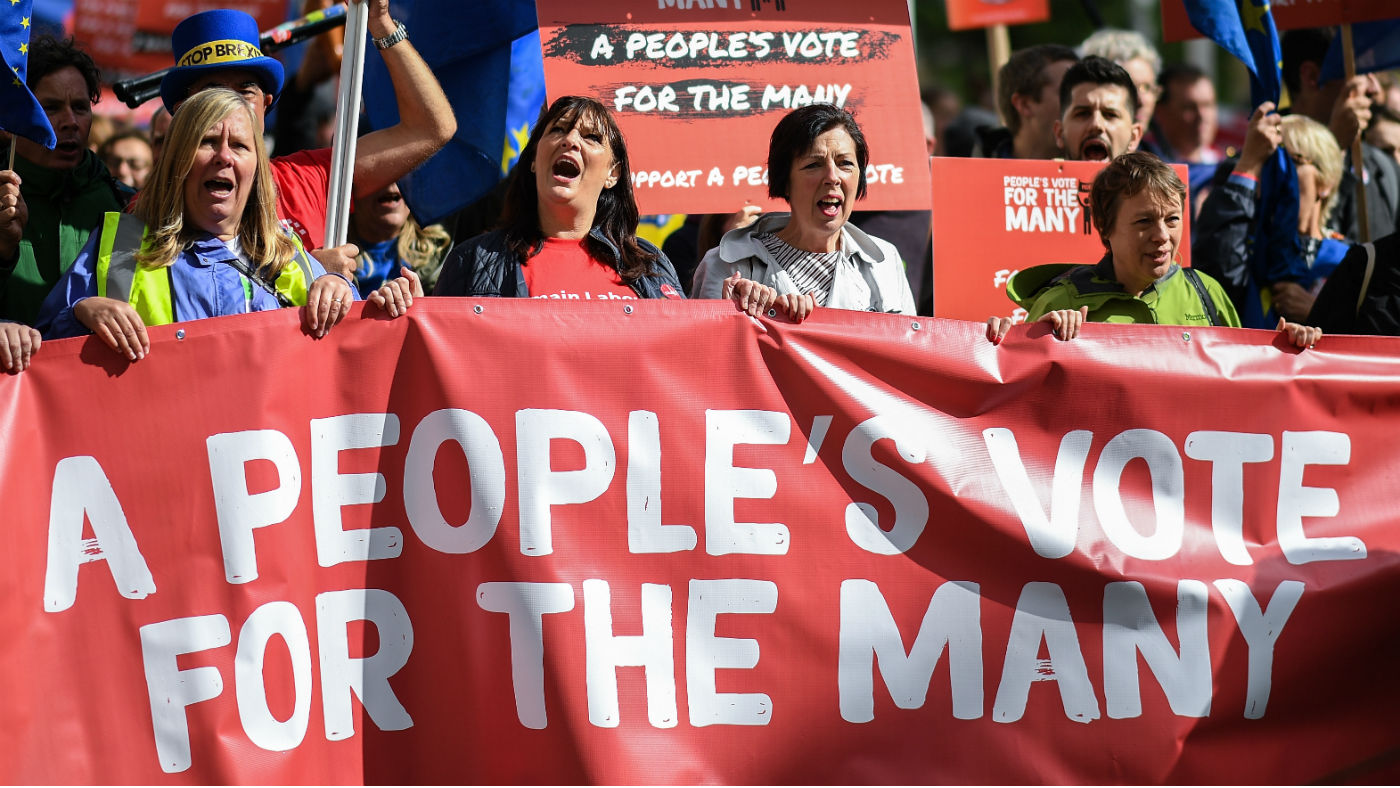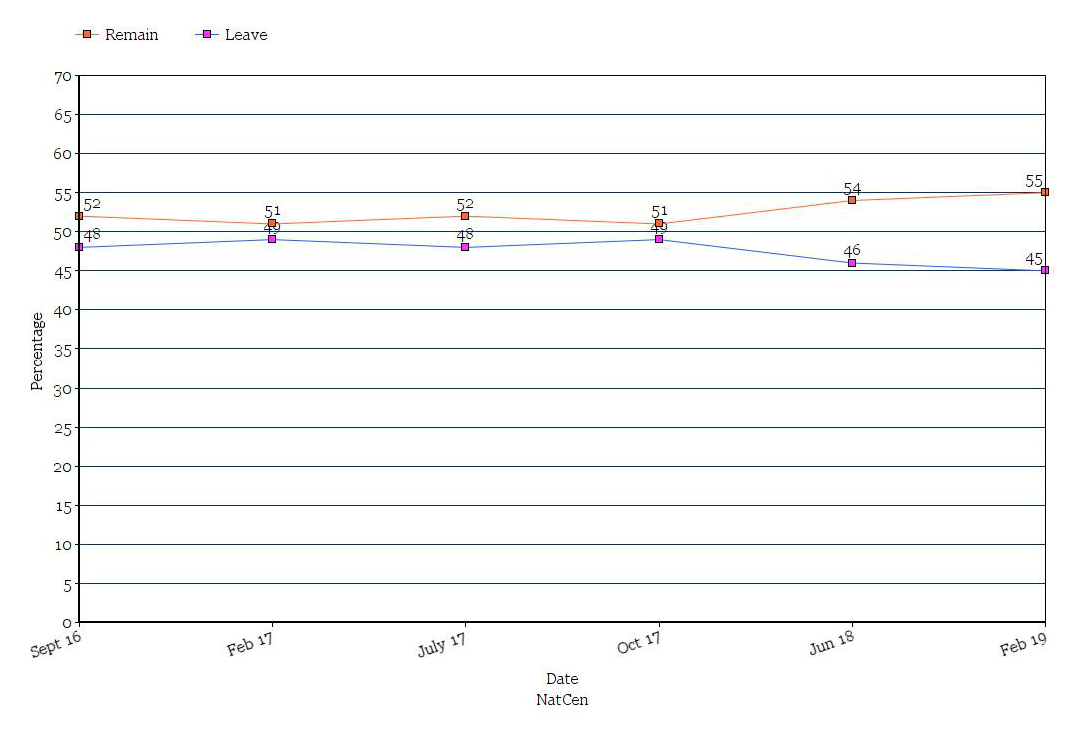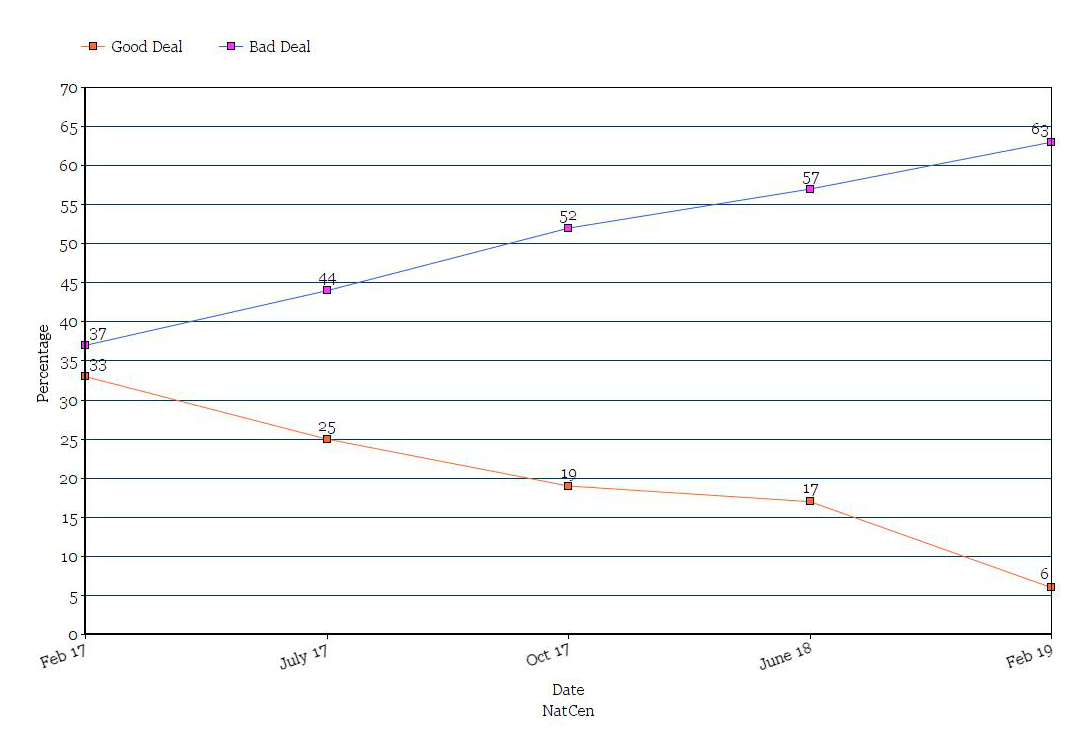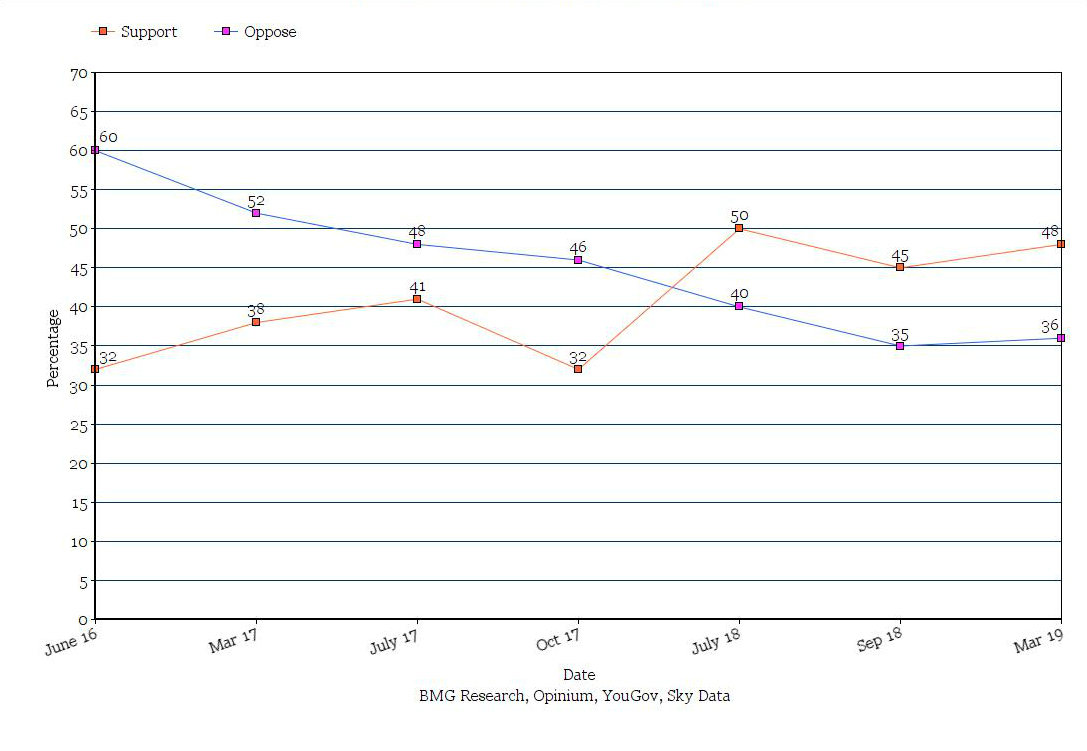Brexit polls: how the mood has changed in Britain in three charts
New study raises doubts about whether leaving the EU continues to be the majority view

A free daily email with the biggest news stories of the day – and the best features from TheWeek.com
You are now subscribed
Your newsletter sign-up was successful
As Theresa May toils away in Parliament, vowing to enact the “will of the people”, a new study shows how British attitudes have shifted on Brexit since the EU referendum.
The research, led by veteran pollster Sir John Curtice, shows that UK nationals are becoming increasingly doubtful about Brexit, with a large majority saying the government has handled the process badly.
The data from surveys conducted by NatCen Social Research up to 17 February of this year will do “little to help May as she struggles to get MPs to support her Brexit deal in the event that she tables it a third time after it was comprehensively defeated twice”, says the Financial Times.
The Week
Escape your echo chamber. Get the facts behind the news, plus analysis from multiple perspectives.

Sign up for The Week's Free Newsletters
From our morning news briefing to a weekly Good News Newsletter, get the best of The Week delivered directly to your inbox.
From our morning news briefing to a weekly Good News Newsletter, get the best of The Week delivered directly to your inbox.
Curtice believes the study’s results, which have been corroborated by polls, is “enough to raise doubts about whether, two and half years after the original ballot, leaving the EU necessarily continues to represent the view of a majority of the British public”, says Sky News’s Faisal Islam.
Here’s how the mood in Britain has changed since the UK voted to leave the EU in 2016:
How people would vote in a repeat referendum

At present, the average level of support for the two options (after Don’t Knows are excluded) in a hypothetical repeat of the referendum is 54% for Remain and 46% for Leave. In part, “this is because Leave voters are a little less likely to say they would vote the same way again (82%) than Remain voters are (86%)”, says Curtice, writing for the BBC.
A free daily email with the biggest news stories of the day – and the best features from TheWeek.com
The small swing to Remain is also down to those who did not vote in 2016, he says. Of this group, the new study reveals that 43% say they would vote Remain, whereas 19% say they would back Leave.
In truth, the polls are “too close for opponents of Brexit to assume that a second ballot would produce a different result”, says Curtice. But, equally, “supporters of Brexit cannot say with confidence that the balance of opinion remains as it was in June 2016”, he adds.
Expectations of whether the UK will get a good or bad deal

As the chart shows, the growing mood of pessimism about what might eventually emerge from the negotiations has concluded with a decidedly negative evaluation.
Just before the UK triggered the Article 50 process in March 2017, the public were almost evenly divided between those who anticipated that Britain would secure a good deal (33%) and those who anticipated that it would obtain a bad one (37%). But as the negotiations dragged on those thinking a good deal was possible have dramatically slipped away.
The study also found that 80% of Leave voters said the government had handled the Brexit negotiations badly, up from 27% in 2017. The figure for all voters was 80%, nearly double the figure two years ago.
Support for a second referendum

As the British public have turned away from the Conservative government’s handling of the Brexit negotiations, support for another referendum or so-called “People’s Vote” has grown. This can be seen in the chart above, which excludes the Don’t Knows.
In June 2016, a BMG Research opinion poll put opposition to a second referendum at 60%, but in March 2017 following May’s Lancaster House speech that set out her plan for a Hard Brexit an Opinium poll saw that opposition fall to 52%.
This trend continued, with support for a second referendum rising to 41% in another Opinium poll in July 2017. A positive reaction to May’s Florence Speech in September 2017 saw support fall away for a second referendum in a YouGov poll. But the launch of the People’s Vote campaign in April 2018, coupled with the controversy over May's Chequers plan saw a Sky Data poll put support for a referendum at 50%. That held steady for the rest of last year, with a massive YouGov poll of 25,641 people in September putting support at 45%. The most recent poll, conducted by YouGov this month, puts opposition to a second referendum as low as 36%.
-
 Local elections 2026: where are they and who is expected to win?
Local elections 2026: where are they and who is expected to win?The Explainer Labour is braced for heavy losses and U-turn on postponing some council elections hasn’t helped the party’s prospects
-
 6 of the world’s most accessible destinations
6 of the world’s most accessible destinationsThe Week Recommends Experience all of Berlin, Singapore and Sydney
-
 How the FCC’s ‘equal time’ rule works
How the FCC’s ‘equal time’ rule worksIn the Spotlight The law is at the heart of the Colbert-CBS conflict
-
 Local elections 2026: where are they and who is expected to win?
Local elections 2026: where are they and who is expected to win?The Explainer Labour is braced for heavy losses and U-turn on postponing some council elections hasn’t helped the party’s prospects
-
 How corrupt is the UK?
How corrupt is the UK?The Explainer Decline in standards ‘risks becoming a defining feature of our political culture’ as Britain falls to lowest ever score on global index
-
 The high street: Britain’s next political battleground?
The high street: Britain’s next political battleground?In the Spotlight Mass closure of shops and influx of organised crime are fuelling voter anger, and offer an opening for Reform UK
-
 EU-Mercosur mega trade deal: 25 years in the making
EU-Mercosur mega trade deal: 25 years in the makingThe Explainer Despite opposition from France and Ireland among others, the ‘significant’ agreement with the South American bloc is set to finally go ahead
-
 Biggest political break-ups and make-ups of 2025
Biggest political break-ups and make-ups of 2025The Explainer From Trump and Musk to the UK and the EU, Christmas wouldn’t be Christmas without a round-up of the year’s relationship drama
-
 Who is paying for Europe’s €90bn Ukraine loan?
Who is paying for Europe’s €90bn Ukraine loan?Today’s Big Question Kyiv secures crucial funding but the EU ‘blinked’ at the chance to strike a bold blow against Russia
-
 ‘The menu’s other highlights smack of the surreal’
‘The menu’s other highlights smack of the surreal’Instant Opinion Opinion, comment and editorials of the day
-
 Moscow cheers Trump’s new ‘America First’ strategy
Moscow cheers Trump’s new ‘America First’ strategyspeed read The president’s national security strategy seeks ‘strategic stability’ with Russia